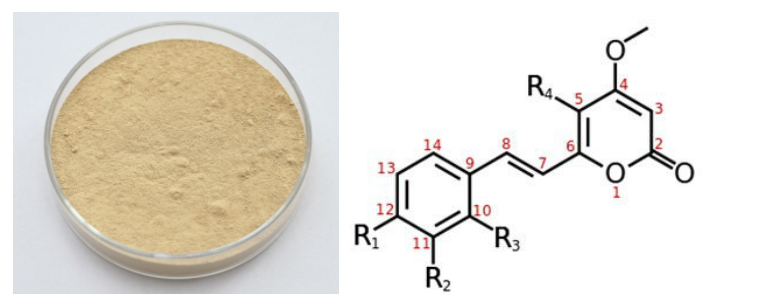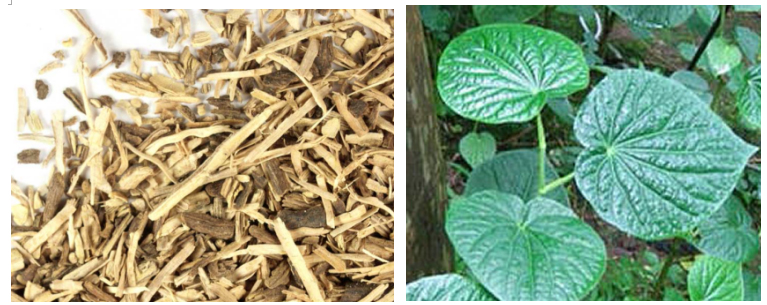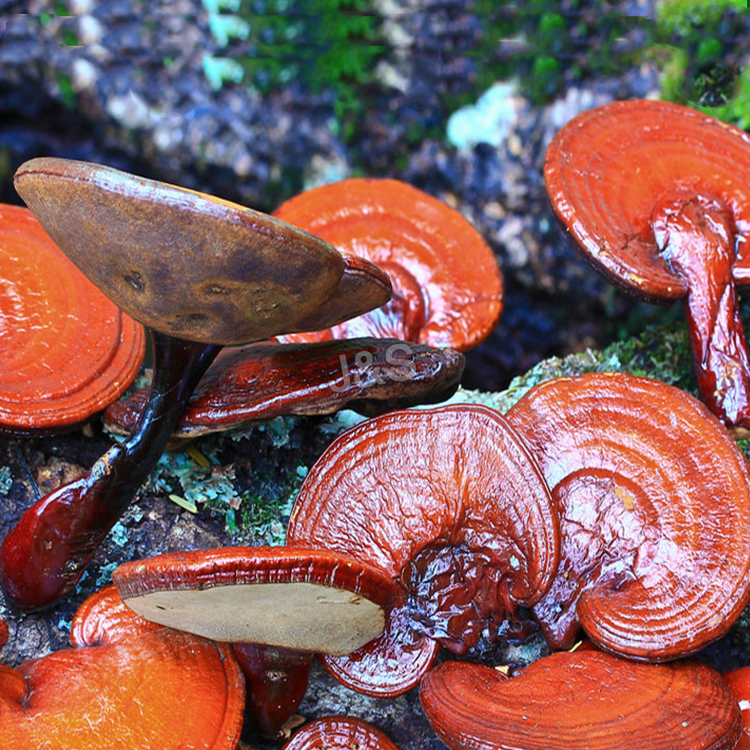2016 Latest Design Kava Extract Factory in Turkey
2016 Latest Design Kava Extract Factory in Turkey Detail:
[Latin Name] Piper methyicium L.
[Specification] Kavalactones ≥30.0%
[Appearance] Yellow powder
Plant Part Used: Root
[Particle size] 80Mesh
[Loss on drying] ≤5.0%
[Heavy Metal] ≤10PPM
[Storage] Store in cool & dry area, keep away from the direct light and heat.
[Shelf life] 24 Months
[Package] Packed in paper-drums and two plastic-bags inside.
[Net weight] 25kgs/drum
[What is Kava?]
Kava, also known as piper methysticum, kava kava, and ‘awa, is a small shrub native to the islands in the South Pacific. The root and stems are made into a non-alcoholic, psychoactive beverage that has been used socially and ceremonially for hundreds of years in Hawaii, Fiji, and Tonga.
Kava is traditionally prepared by placing ground root and stem into a porous sack, submerging in water, and squeezing the juice into a large, carved, wooden bowl. Coconut half-shell cups are dipped and filled — punch bowl style. After drinking a cup or two a feeling of heightened attention combined with relaxation begins to come on. Although it is soothing, it is unlike alcohol in that thoughts remain clear. The flavor is largely inoffensive, but some find that it takes getting used to; it really depends on your preference for earthy flavors.
[Kava is Safe to Use]
The safe and effective benefits of kava to relieve symptoms of anxiety were also supported in a meta-analysis, a systematic statistical review of seven human clinical trials published in 2000 in the Journal of Clinical Psychopharmacology, and again in a similar critical review in 2001. The reviews did not find significant adverse effects related to liver toxicity.
In conclusion, the liver is affected by many substances, including prescription and non- prescription drugs, as well as alcohol, which is a major cause of liver damage. We must be aware that herbs are potent medicines, to be treated with the appropriate respect regarding potential interactions and toxicity, including to the liver. On the other hand, Kava kava’s margin of safety far surpasses that of it’s pharmaceutical equivalent.
[Function]
Kava’s can help offset a number of problems, most notably stress, anxiety, and disrupted sleep patterns. However, kava’s anxiolytic (anti-panic or anti-anxiety agent) and calming properties can offset many other stress and anxiety related ailments.
1. Kava as a Therapy for Anxiety
2. Kava May Remedy Menopausal Mood Swings
3. Weight Loss
4. Combat Premature Aging
5. Quit Smoking Aid
6. Combat pain as an analgesic
7. Insomnia
8. Depression
Product detail pictures:

Related Product Guide:
Well-run devices, expert profits group, and better after-sales companies; We have been also a unified huge family, everybody keep on with the organization worth "unification, determination, tolerance" for 2016 Latest Design Kava Extract Factory in Turkey , The product will supply to all over the world, such as: Turkey, Hungary, Chicago, Our product quality is one of the major concerns and has been produced to meet the customer's standards. "Customer services and relationship" is another important area which we understand good communication and relationships with our customers is the most significant power to run it as a long term business.
Griti is a learning community for students by students. We build thousands of video walkthroughs for your college courses taught by student experts who got an A+.
SUBSCRIBE to the channel and explore overviews for every concept in your calculus, chemistry and physics courses for FREE!
Register at www.GRITI.co
REQUEST VIDEOS FOR MORE HELP?
+ get thousands of study problems for exam prep
workout,training,exercise,fitness plans,diet.What is Protein,carbohydrate,cholestrol and many more.Plz SUBSCRIBE ME NOW……………………………………
-~-~~-~~~-~~-~-
Please watch: “DREAM BOY FULL HD Song | Babbal Rai :Tera Dreamboy Full Song 2017 | Pav Dharia | Maninder Kailey”
-~-~~-~~~-~~-~-
This supplier stick to the principle of "Quality first, Honesty as base", it is absolutely to be trust.






